This week I attended Tools of Change for Publishing Conference in NYC. Below is what I will call an unconventional guide on how to get the most out of the event, and what I found most interesting. I wasn’t able to attend the final day because after days of conversation, I lost my voice. It’s the strangest feeling. So I stayed home the final day and rested my vocal cords. Okay, let’s get started:
FOCUS ON THE PEOPLE, NOT JUST THE IDEAS & INFORMATION
My lunch group on the first day is an example of connections that happen at conferences. This was completely unplanned and unbelievably amazing. Me with Cory Doctorow, Stephanie Anderson, and Rachel Fershleiser. Wonderful conversation around books, reading, libraries, interaction, community. Too many people attend events keeping quietly to themselves and taking notes. Luckily for me, not these people:
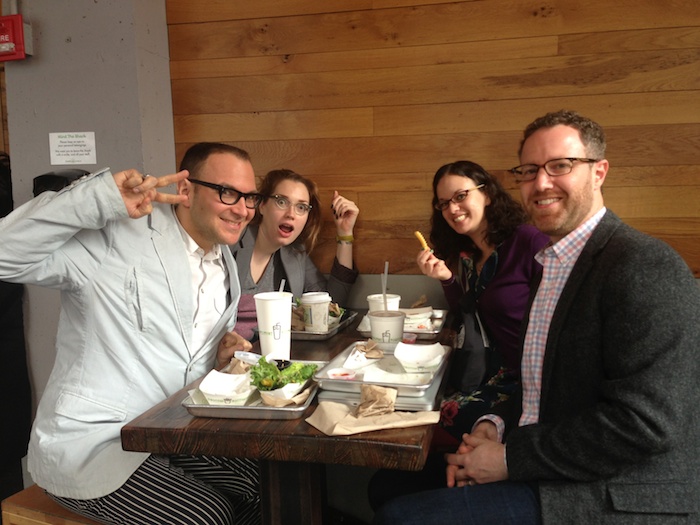
Here is my friend Kevin Smokler with his new book Practical Classics! Kevin is the one who put me on a TOC panel for this event: Books at the Block Party: The Economics and Outcomes of a Local Literary Economy. Thanks Kevin!
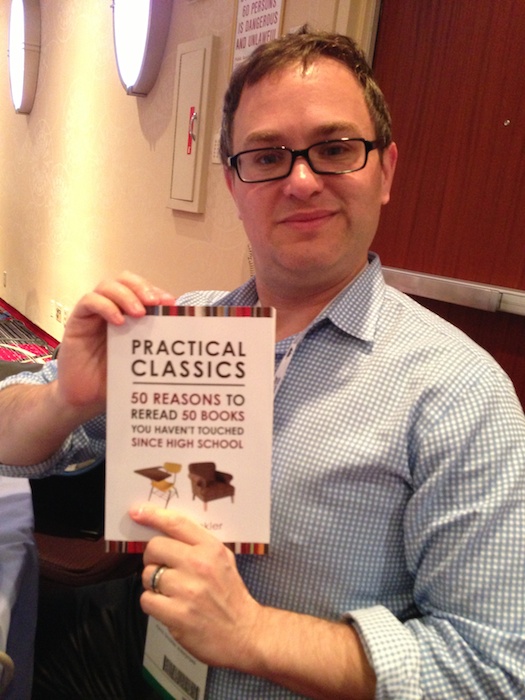
DON’T GET DISTRACTED LIKE I DID
I could not get over how amazing the carpet was at the venue. Who would design something like this? Who would order thousands upon thousands of square yards of it to install in the ballroom of a major hotel in NYC:
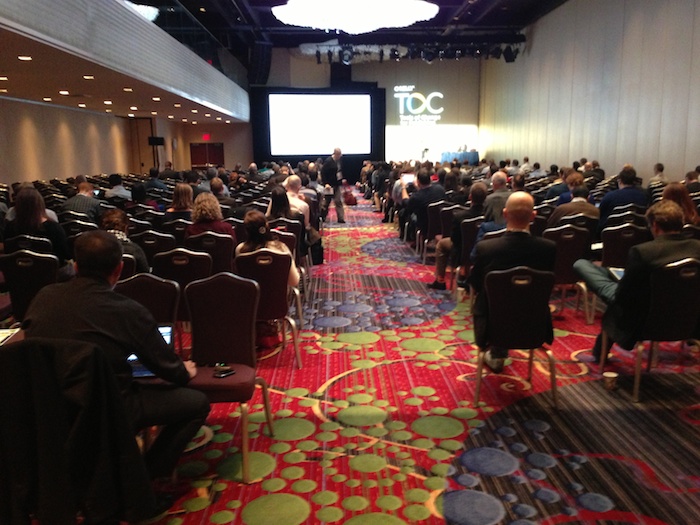
I mean everywhere you looked, it just got better and better:
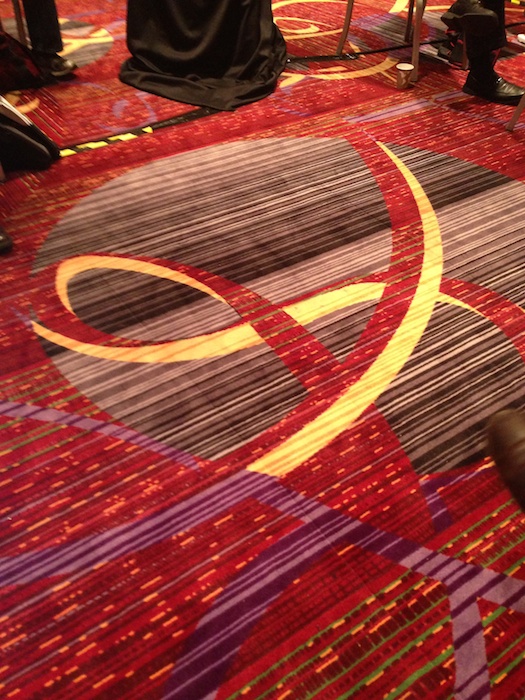
Here is Cory Doctorow’s pants and shoes with the carpet; the only match I could find for it’s amazingness:
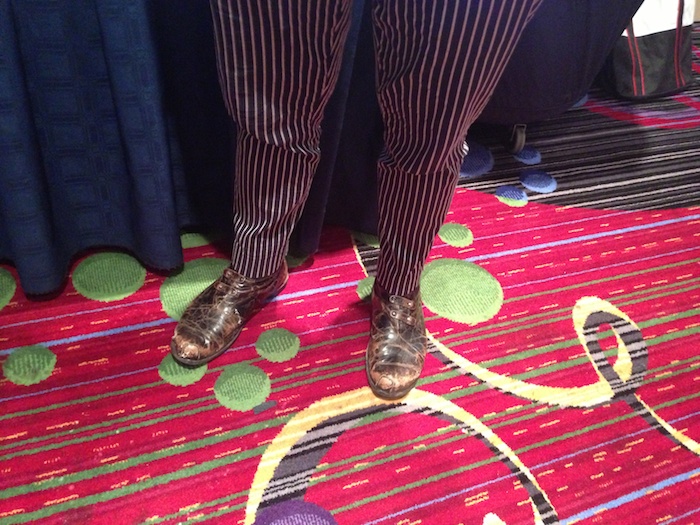
CONNECTION MATTERS
Having solid wi-fi and power connections changes everything. I was able to Tweet up a storm in the sessions I attended, and got loads of regular work done, meaning I wasn’t stressed about what I was missing while attending the conference.
But the hotel deco continued to blow me away. Look at how PERFECTLY this wi-fi antena matched the wallpaper. It’s almost eerie:
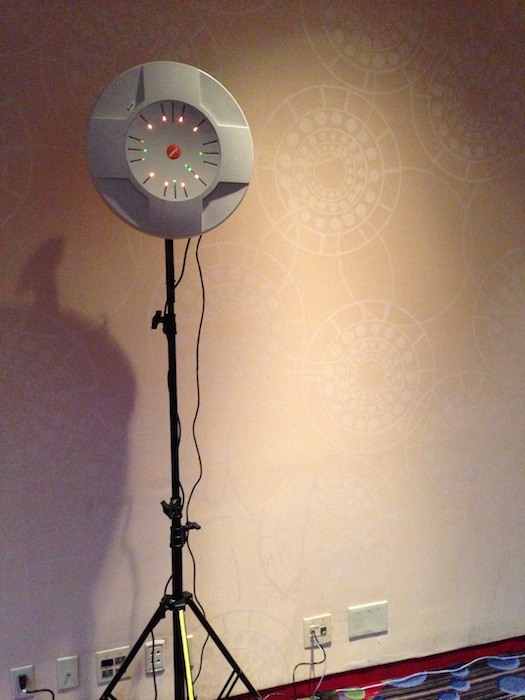
The speakers lounge had tons of wired ethernet connections. That’s a really nice tough, considering the value of a wired connection over wireless.
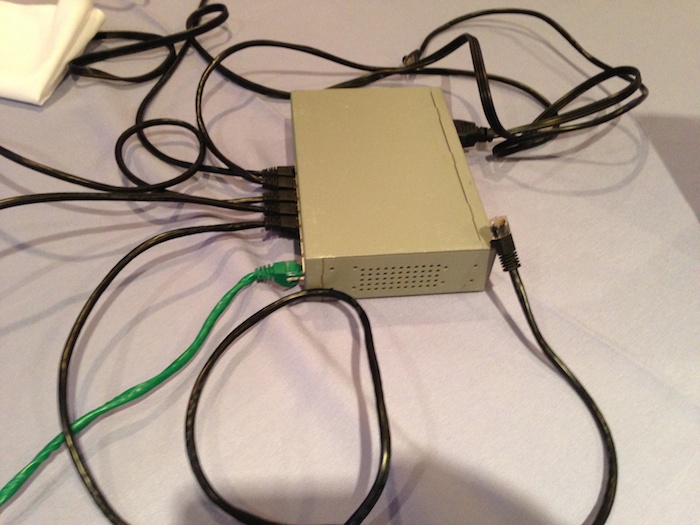
There were power outlets EVERYWHERE. They were snaked under the chairs in sessions, it would take a small army to use them all up. Then I saw this thing coming out of the wall. This place is powered:
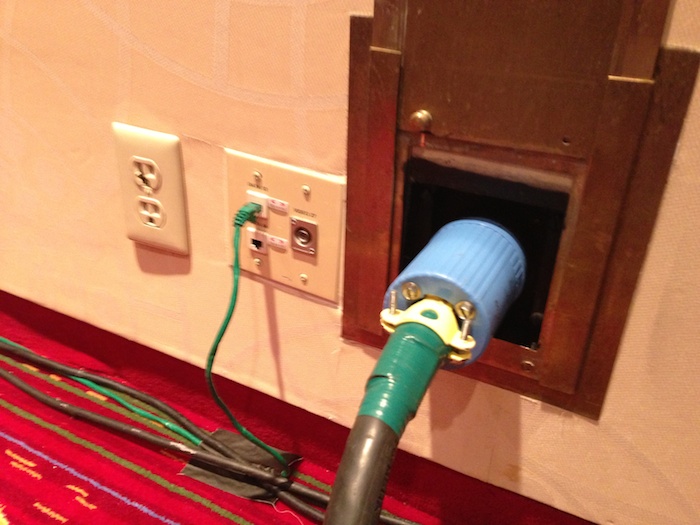
THE FOOD WAS (MOSTLY) AMAZING:
The food was incredibly uncommon for a conference. Much higher quality. But… there were some noticeable absences.
When was the last time you had calamari at a conference buffet lunch?

Or the last time you had bottles and bottles of Boylans soda?
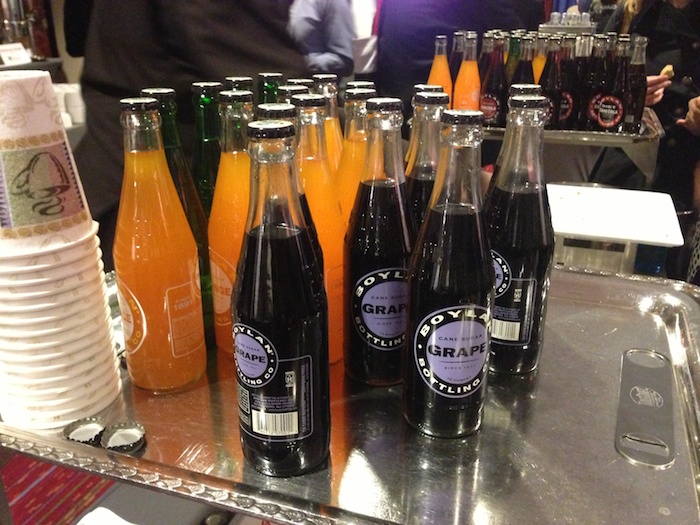
Or little jars of honey for your tea?!
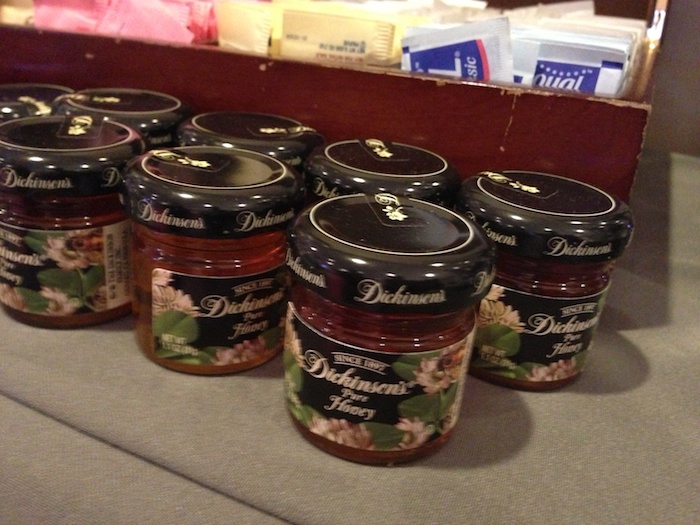
The breakfast spread at the speakers lounge was incredible too:
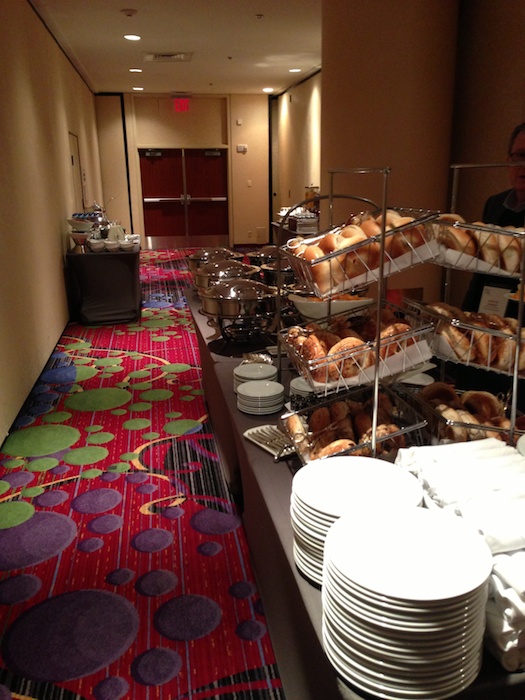
Now let’s talk about the snacks. The first of the three days they had a really nice trail mix. But I kept hearing people ask for chocolate or cookies.

The second day, the snacks were biscotti. Speaking only for myself: when I hit that mid-afternoon slump after hours and hours of sessions for 2 days, hard biscotti did not do much to pick me up. I know, this sounds petty. And it is. I’m petty. I’m sorry. Since I wasn’t able to attend on day 3, I missed out on the rumored Valentines chocolate. So I’m sure that would have made me feel better about the snacks.

DON’T GET DISTRACTED LIKE I DID – PART 2
By far the scariest part of the venue was the chandeliers. Any interpretation my mind came up with always went back to some science fiction movie where some evil alien is about to zap out my brain.
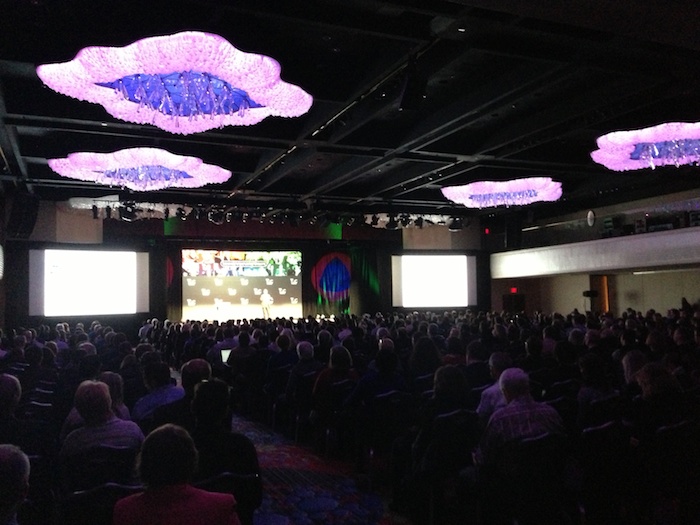
These things floating over my head reminded me of something…
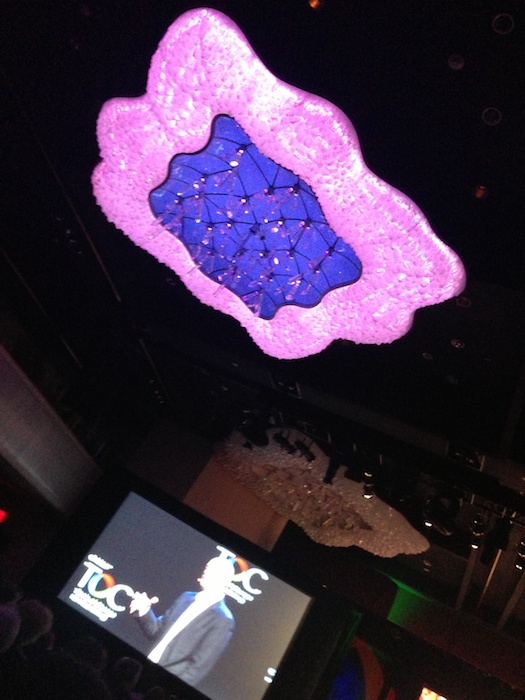
Did you ever see the movie Logan’s Run? When everyone had to go to Carousel? That’s what the chandeliers reminded me of:
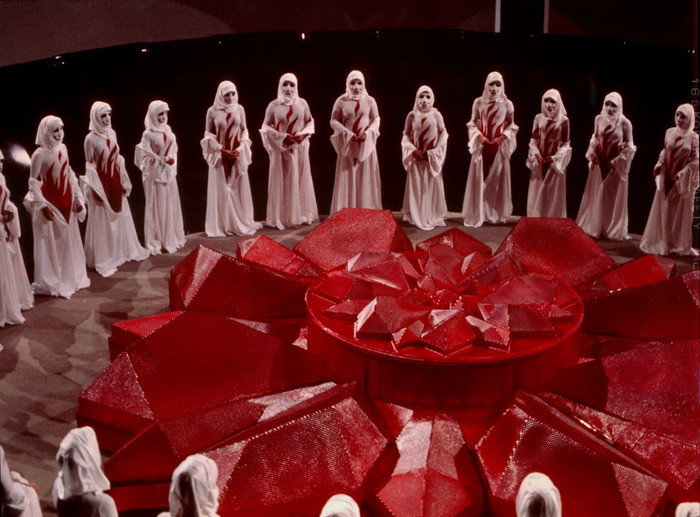
ATTEND THE SESSIONS – LOOK FOR THE UNEXPECTED
Part of the Tools of Change conference was a 1-day mini-event: Author (R)evolution Day. This was an event focused not on publishers or technologists, but for WRITERS. Love that. Here is Kristen McLean moderating a panel:
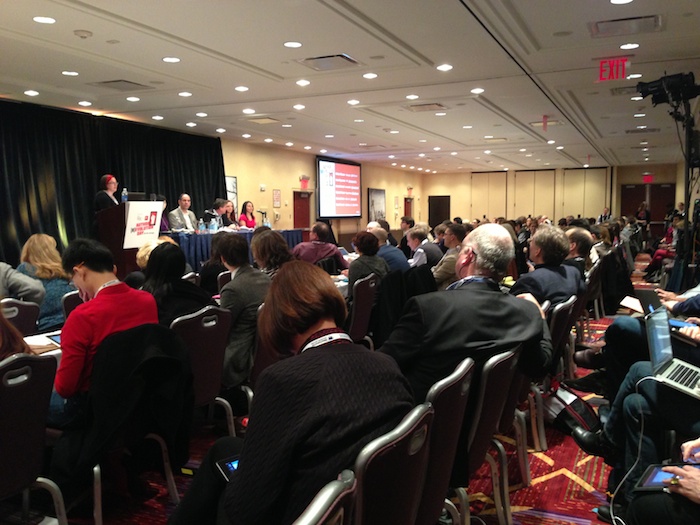
In another session, someone used a Darth Vader LEGO minifigure to represent Amazon.com:
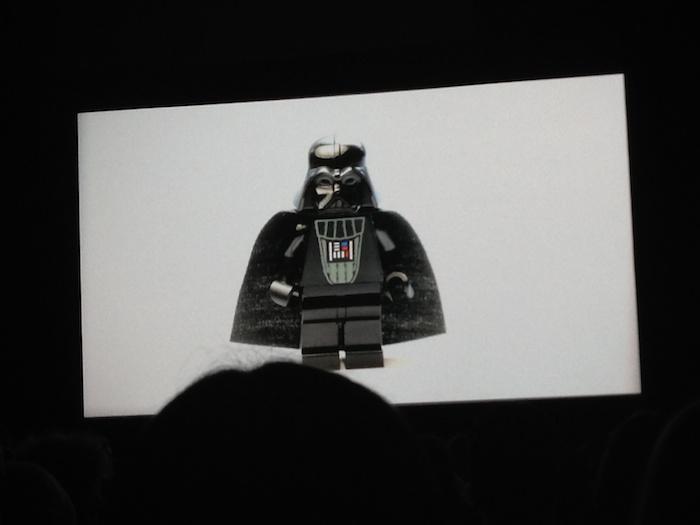
This is every businesses dream slide:
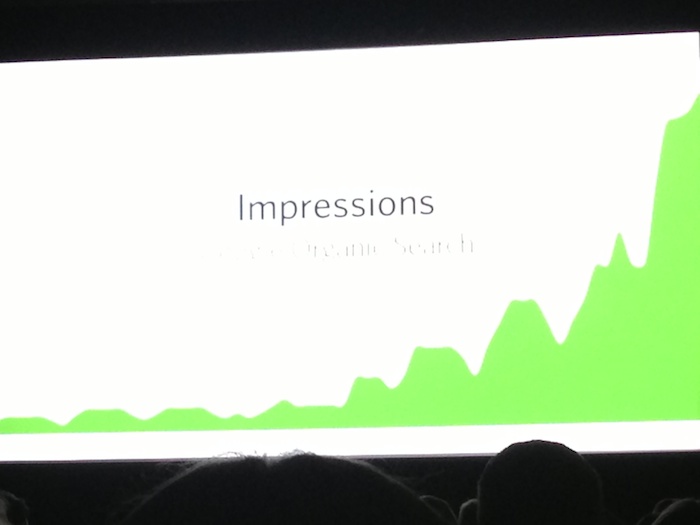
Laura Dawson had this elephant slide. I can’t remember why. Something about books. And an elephant:
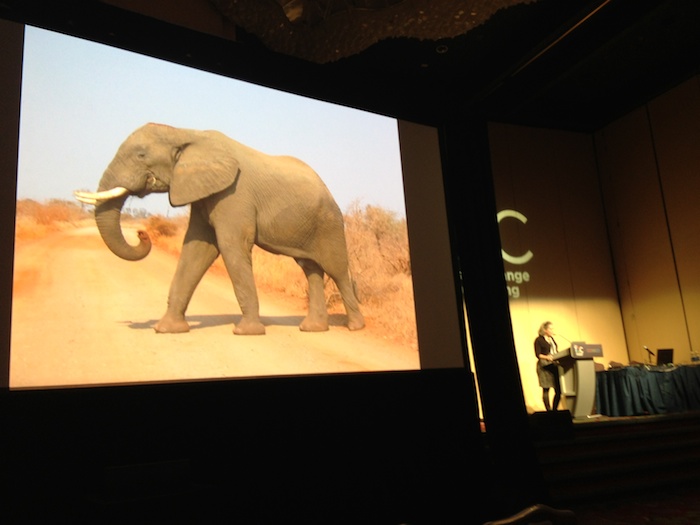
RESIST THE URGE TO BECOME JADED
A big part of Tools of Change is showcasing startups and new technologies that could positively affect publishing. It took awhile for me to get used to what you COULD call “pitching” in many of the presentations. A moderator who has a book coming out mentioning it again and again; a speaker showing us a video commercial for his product that includes smiling children; points being made about what is good for readers and writers, and then immediately turning back around to how their product delivers the solution.
I had to keep myself from being jaded, and remind myself that what Tools of Change is trying to do is give the stage to companies that have great ideas, great technology, but only a small footprint in the world. How can we give them a voice?
Where I found myself especially hopeful in this manner was the Startup Showcase. It is here that you interact directly with the founders of small companies. I only got to speak to about half of them (because the lack of sugary treats required an extra afternoon coffee run), but all were passionate and smart. Here are some of them demoing their wares:
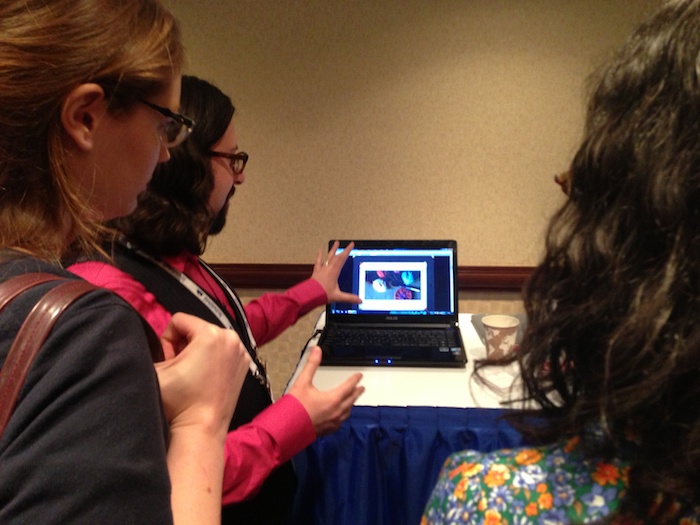
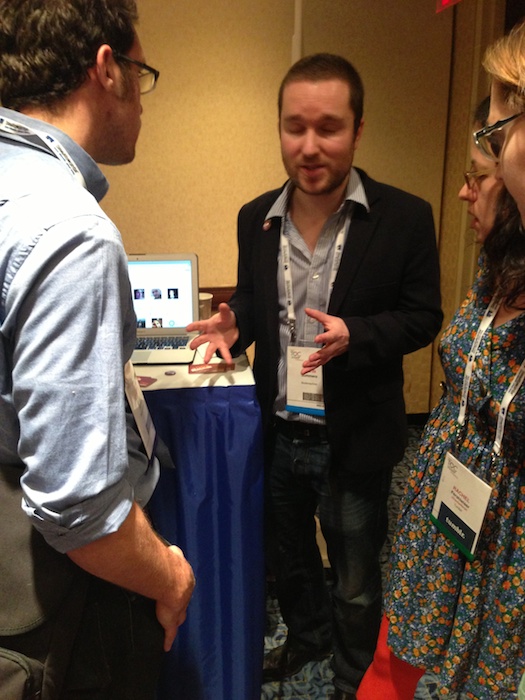
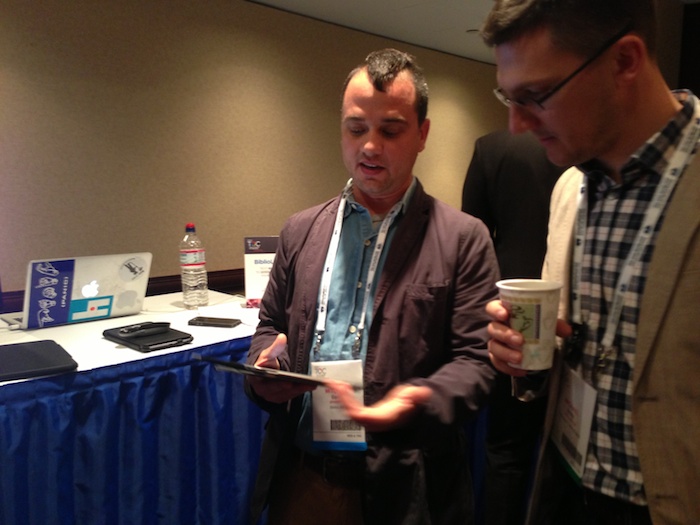
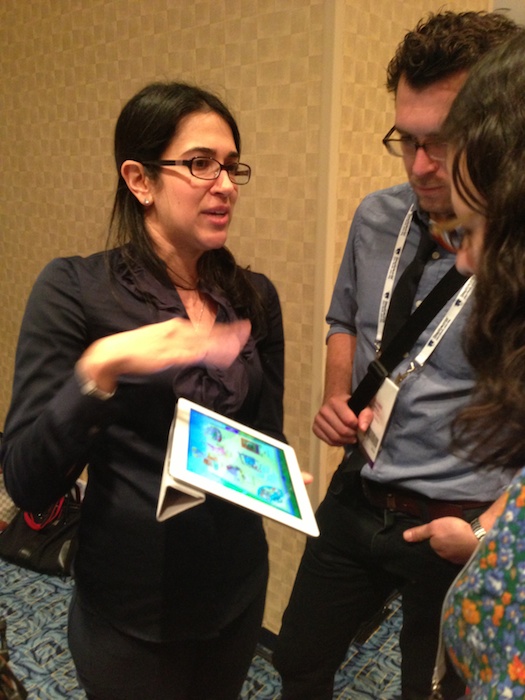
The one startup that I least expected was Paperight. Here is someone trying to solve a problem that I hear NO ONE else talking about, and that I had never considered myself. How do poorer regions of South Africa gain access to books. Areas where very very few people have a computer or web connection. Here he is giving us the story:
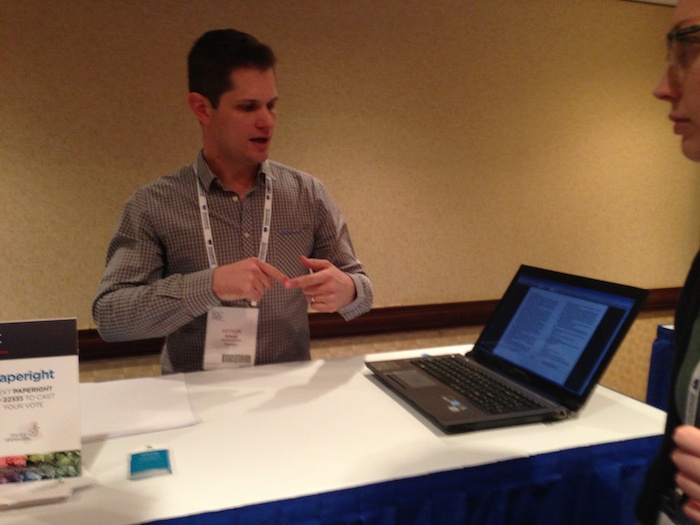
And here is a map of where they are already in the field in communities. The other startups I spoke to were great. I missed speaking to some of them. But this one made me care about a problem I didn’t know existed 5 minutes earlier. That’s the kind of unexpected things I look for at an event such as this:
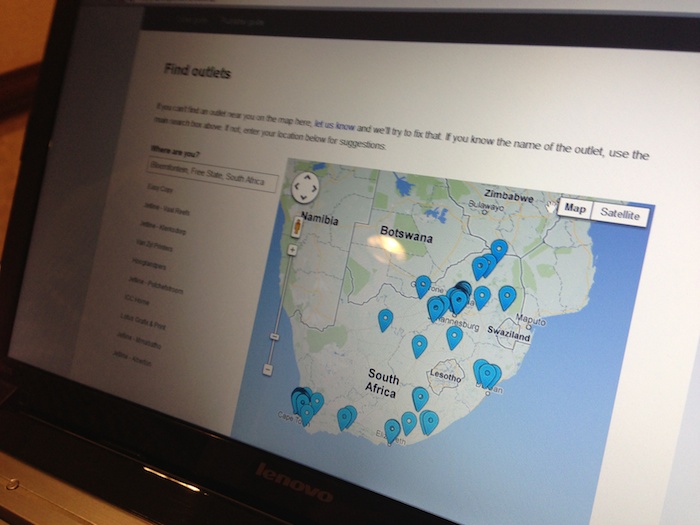
So I want to end with two things. The first is this slide from a Goodreads survey. Question: “What Convinced You To Read That Book?” The top answer: “Trusted Friends.” Love that.
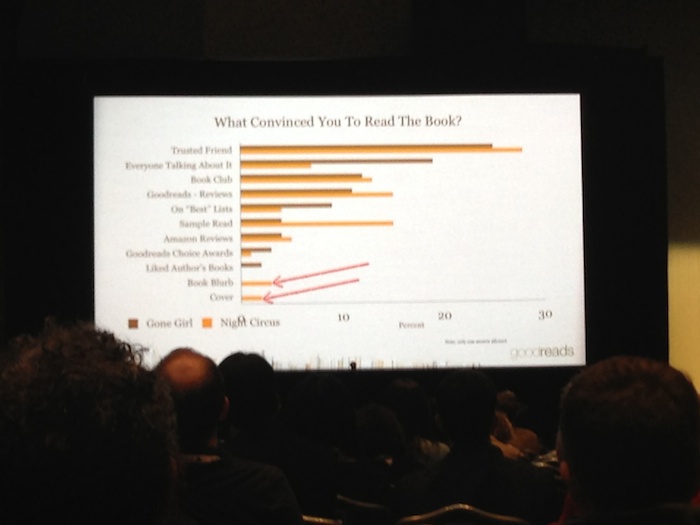
And lastly, a HUGE thank you to the conference chairs Kat Meyer and Joe Wikert who put together a wonderful event! Also: isn’t Kat’s dress amazing? I looked it up: it’s Anthropologie’s “Athena” dress. Well played Kat Meyer:
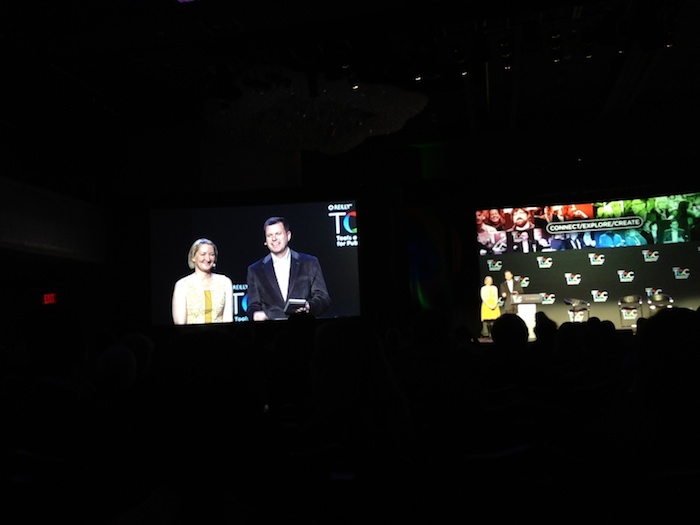

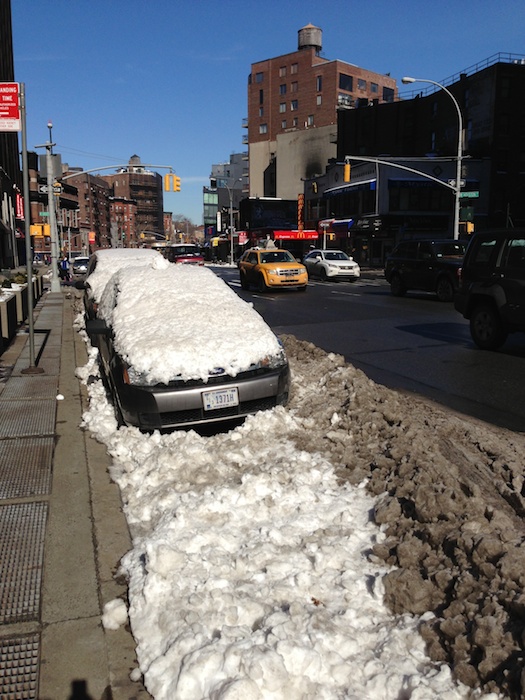
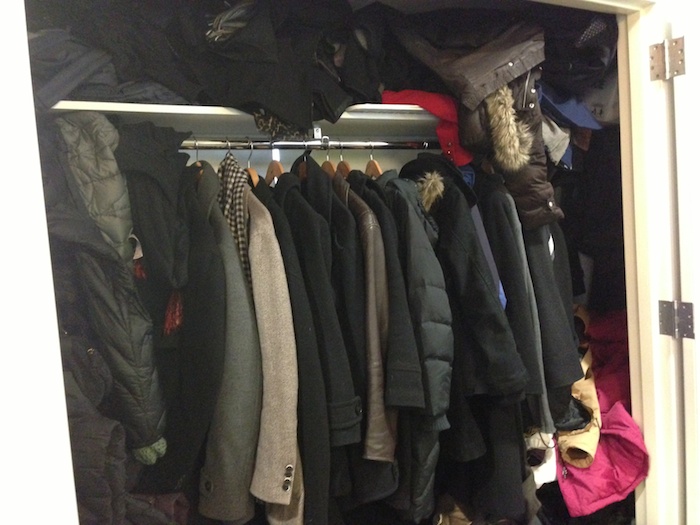
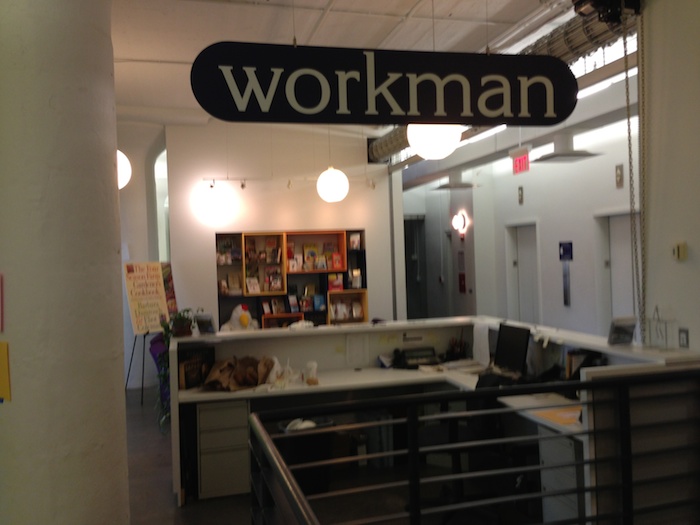
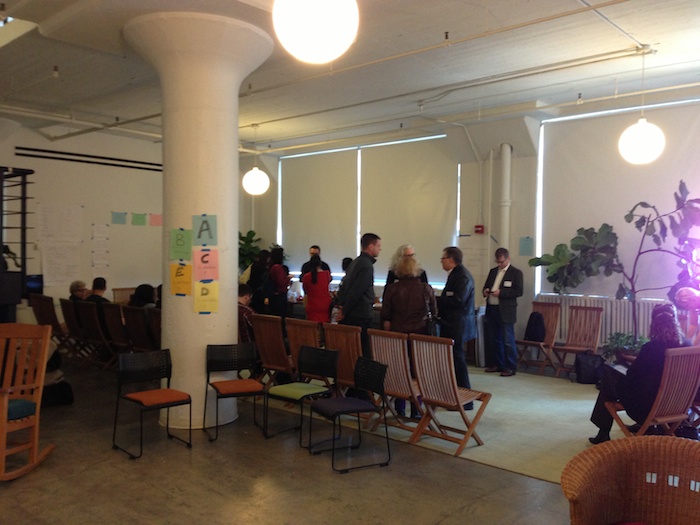
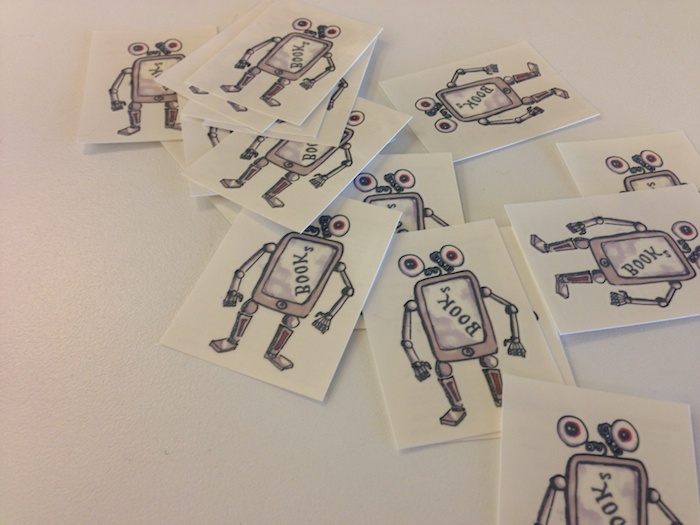
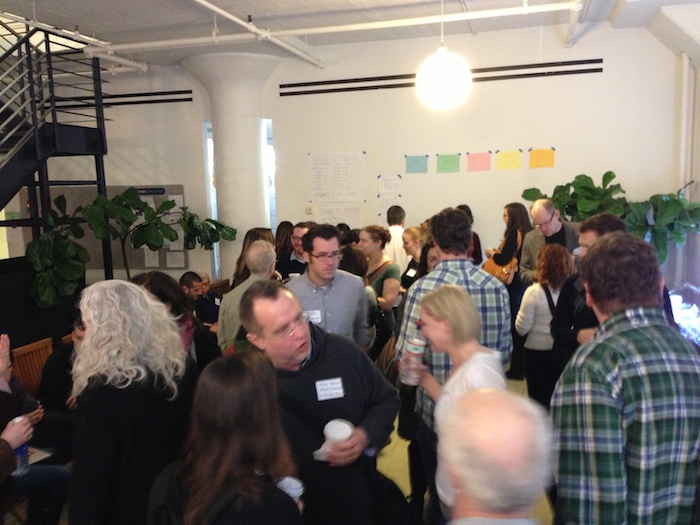
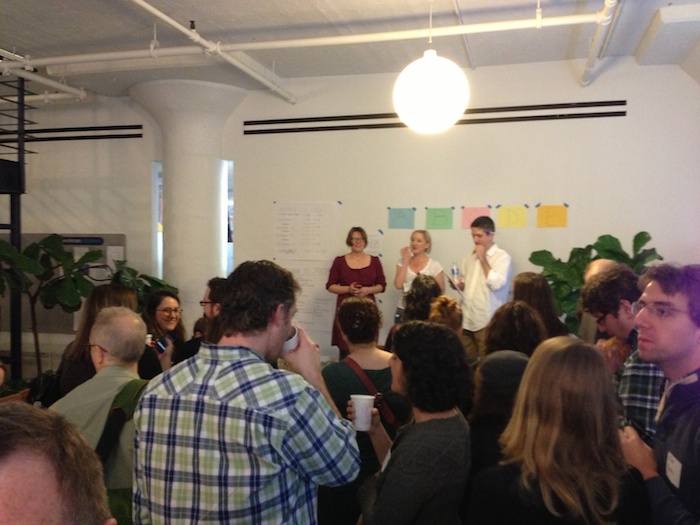
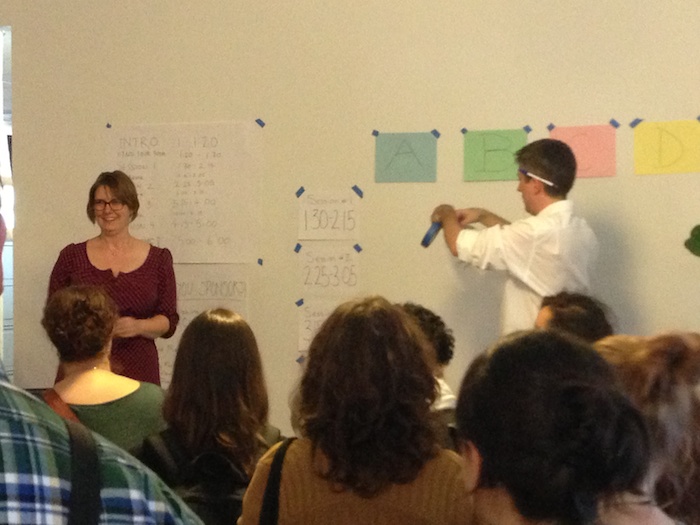
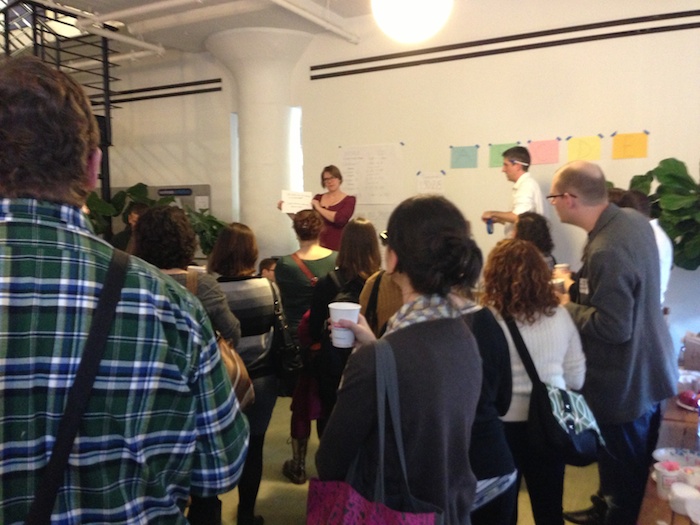
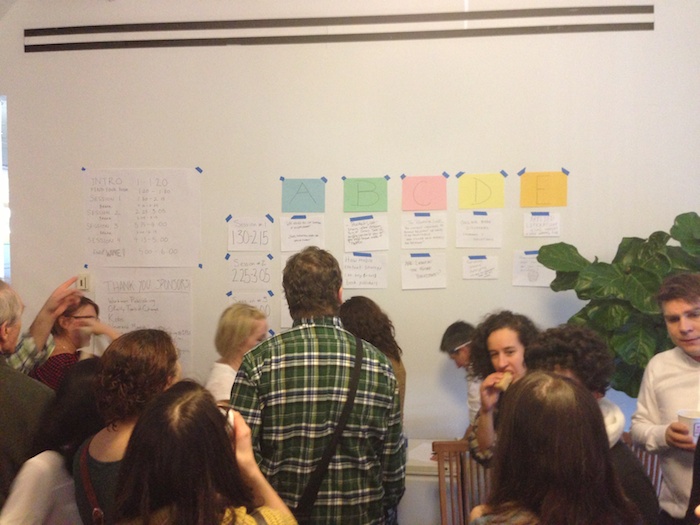
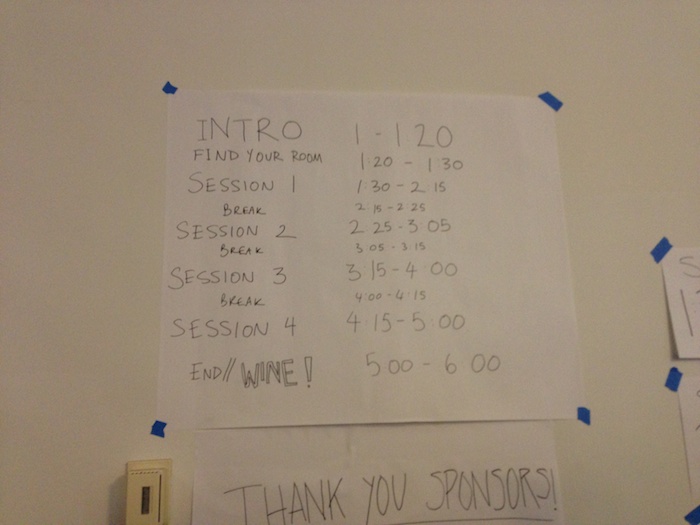
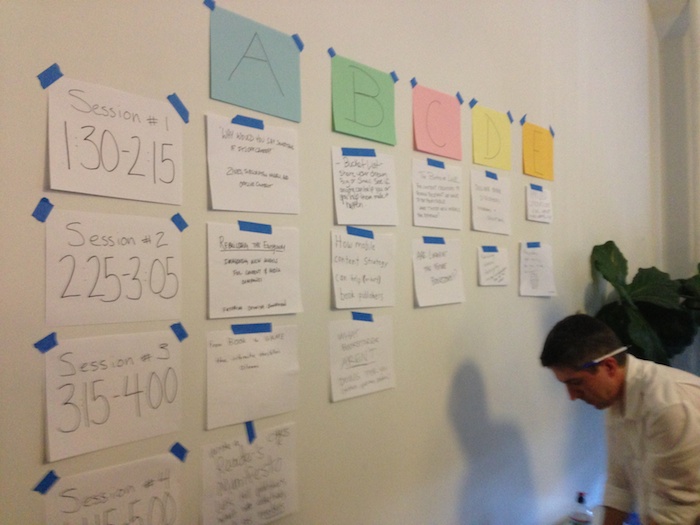
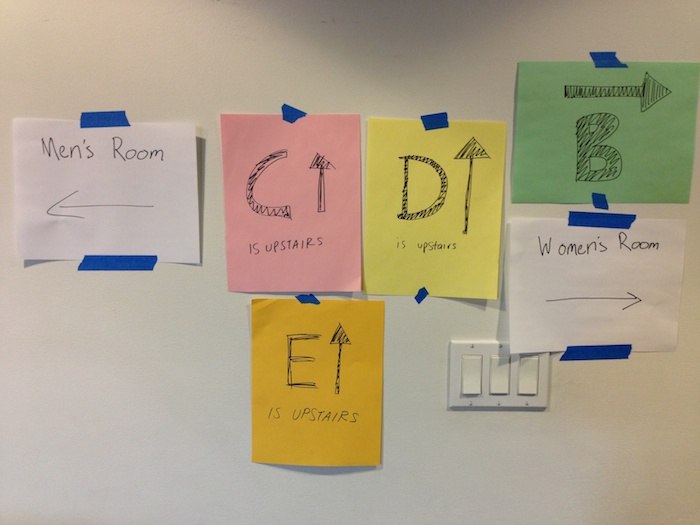
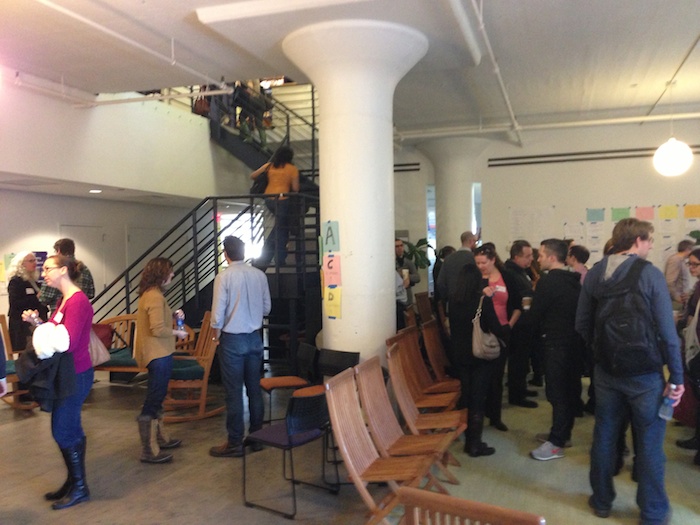
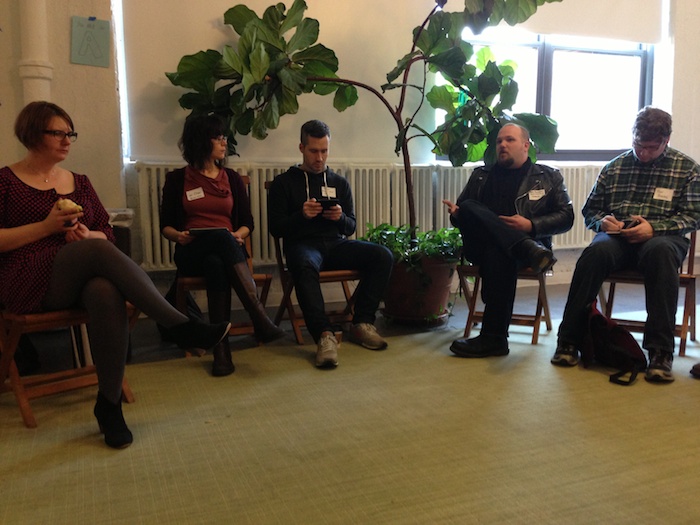
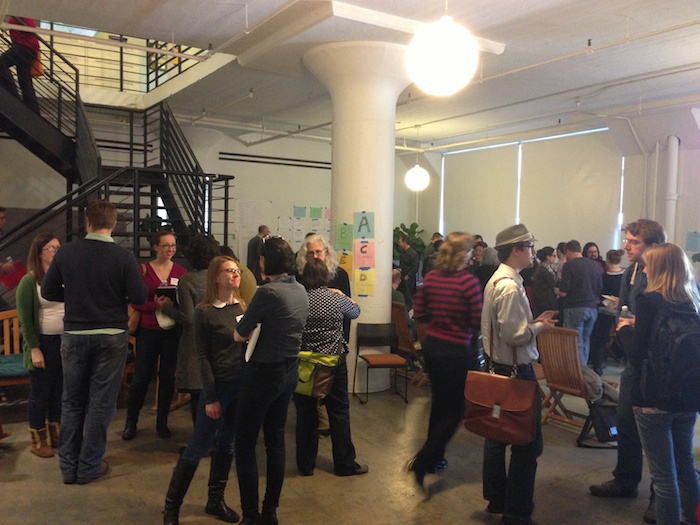
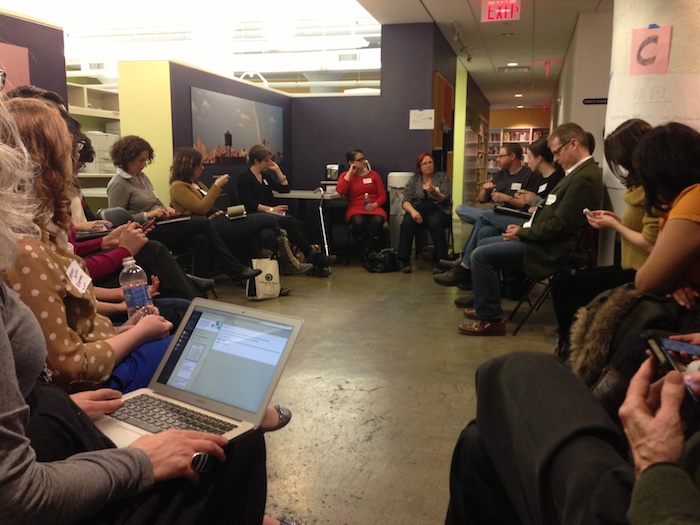
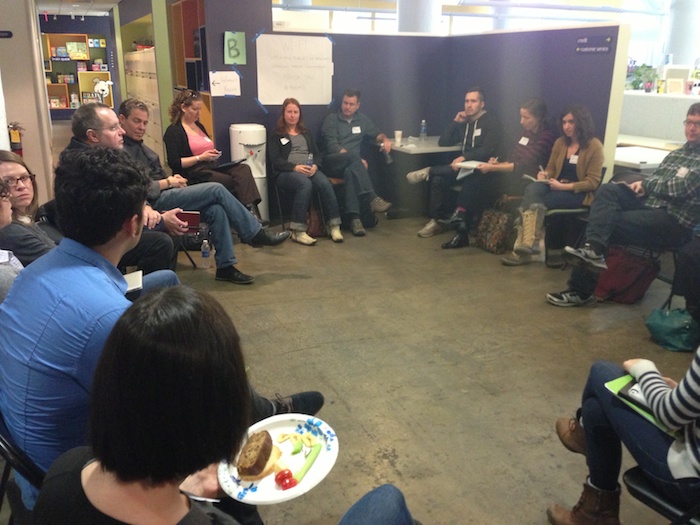
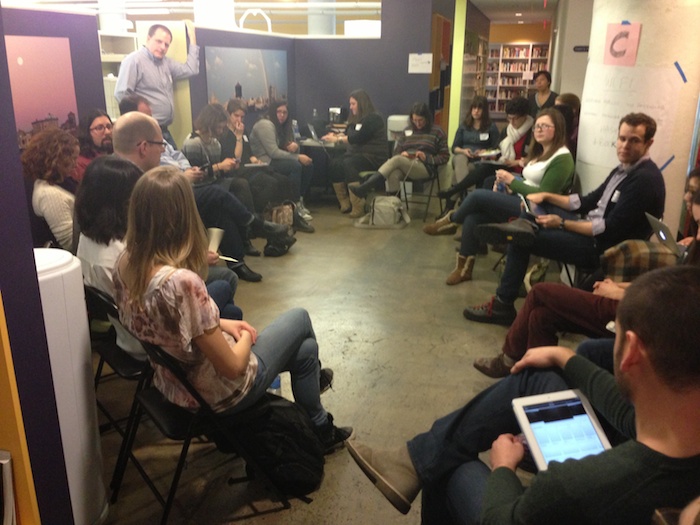
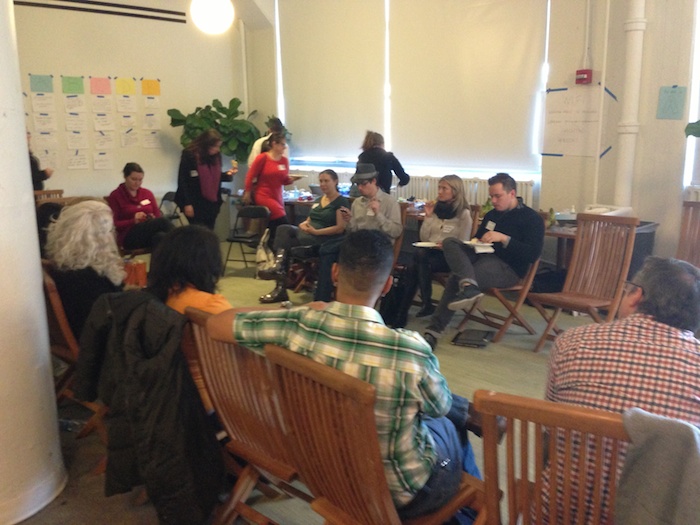
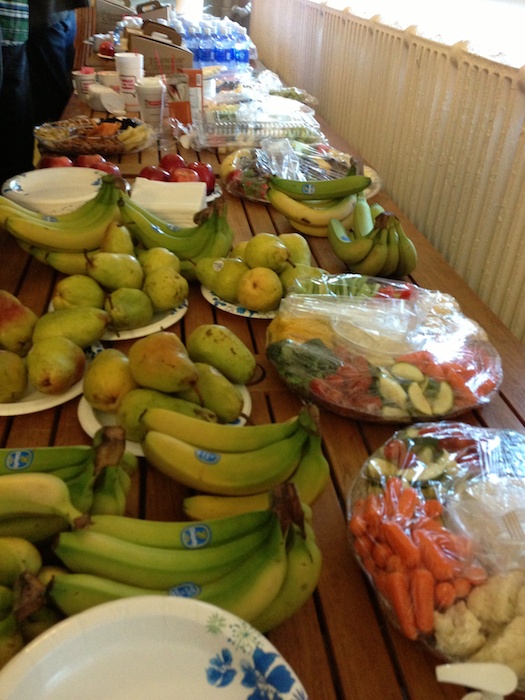
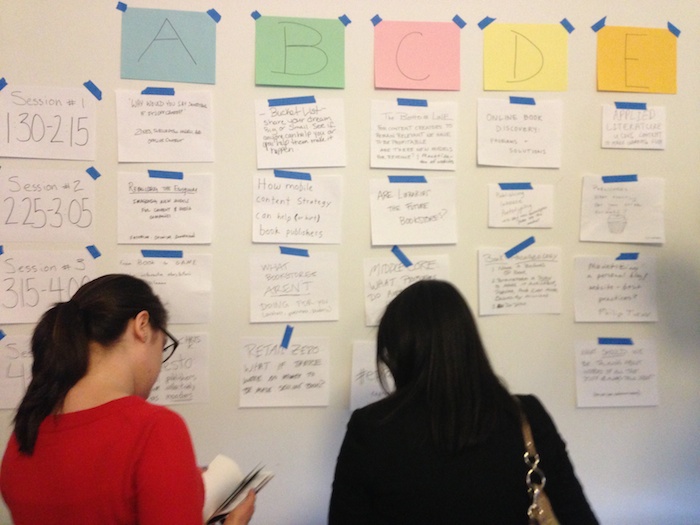
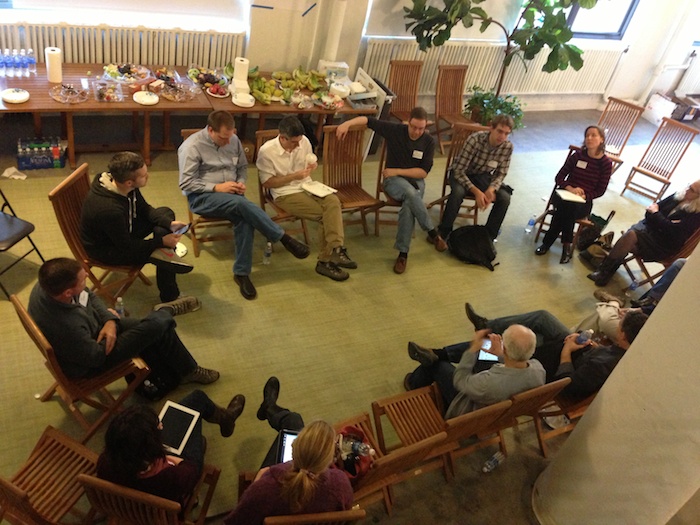
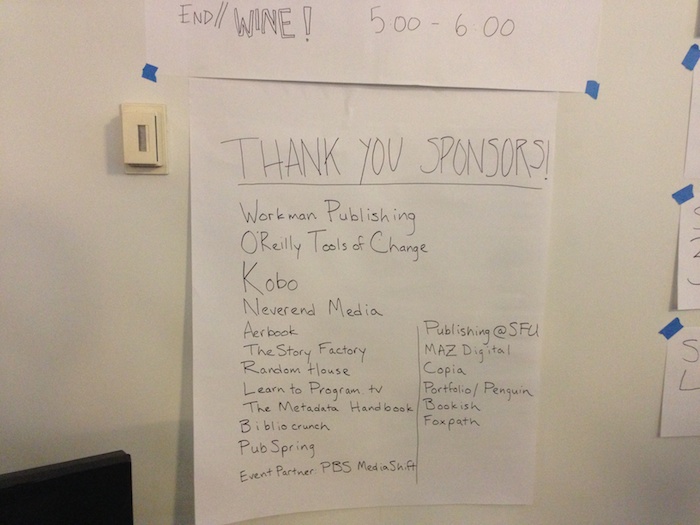
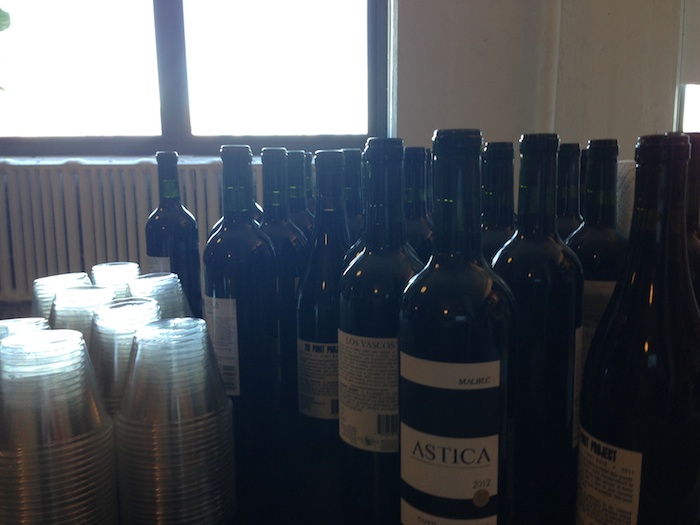
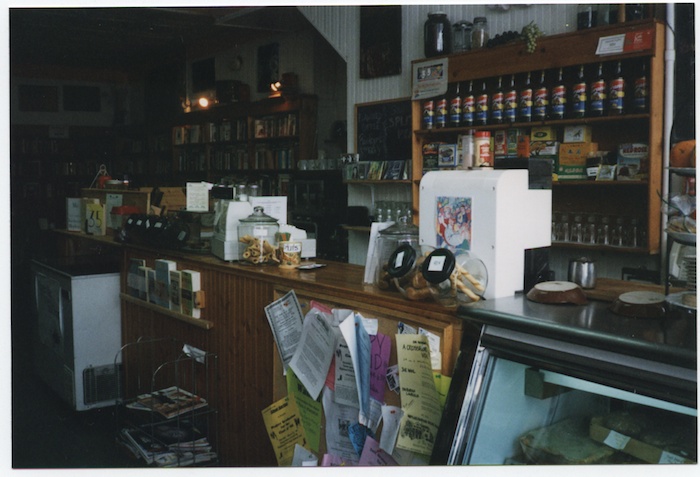
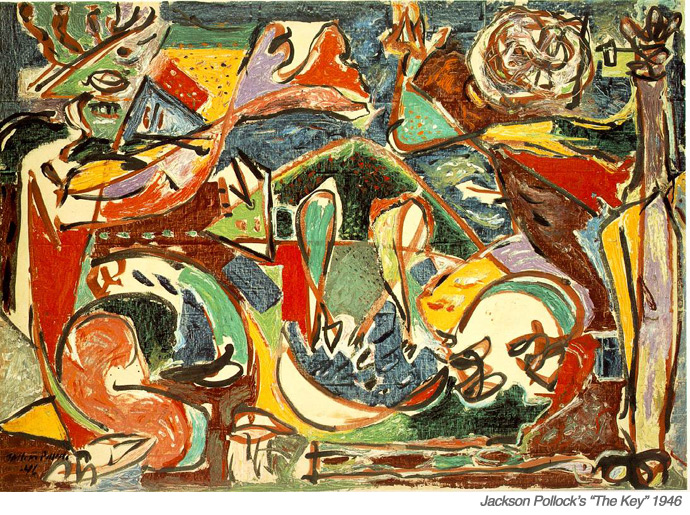
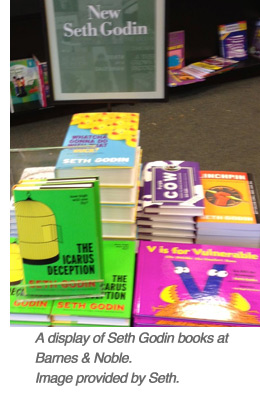 I received an unexpected email from Seth Godin today – he read
I received an unexpected email from Seth Godin today – he read